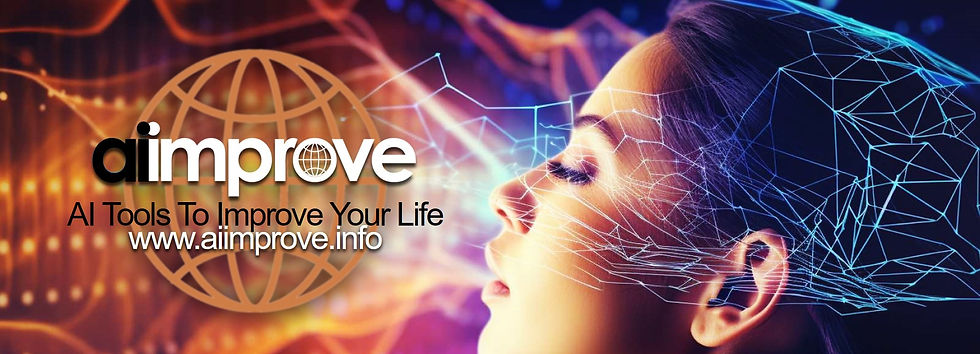AI Tools for Enhanced Decision-Making
- Aug 17, 2025
- 4 min read
In today's fast-paced world, making informed decisions quickly is essential for success. With the rise of artificial intelligence (AI), organizations now have access to powerful tools that can significantly improve their decision-making processes.

In this blog post, we will explore a range of AI tools designed to enhance decision-making, the benefits they offer, and how to integrate them into your existing workflows effectively.
Understanding AI in Decision-Making
Artificial intelligence simulates human intelligence in machines programmed to think and learn. In decision-making, AI tools can analyze vast amounts of data, identify patterns, and provide insights that empower organizations to make better choices.
The integration of AI into decision-making can lead to improved efficiency, reduced risks, and more successful outcomes. For example, a study by PwC highlighted that 72% of business leaders believe AI will be a key business advantage in the coming years. By leveraging AI tools, companies can stay competitive, respond quickly to market shifts, and better meet customer needs.
Types of AI Tools for Decision-Making
1. Predictive Analytics Tools
Predictive analytics tools leverage statistical algorithms and machine learning to analyze historical data and forecast future outcomes. For instance, a retail company can utilize these tools to pinpoint which products are likely to sell well during a holiday season. Research shows that businesses using predictive analytics can improve forecasts by 10 to 20%, leading to optimized inventory and targeted marketing strategies.
2. Natural Language Processing (NLP) Tools
Natural Language Processing (NLP) tools let machines understand and interpret human language. These tools analyze customer feedback and social media interactions to extract valuable insights. For example, a company like Starbucks employs NLP to assess customer feedback from multiple sources, enabling them to identify and address common issues. By acting on this data, they have increased customer satisfaction ratings by as much as 15%.
3. Decision Support Systems (DSS)
Decision Support Systems (DSS) are computer-based tools that aid in decision-making. These systems integrate data, advanced analytical models, and user-friendly interfaces to help decision-makers analyze complex scenarios. In healthcare, medical professionals can use DSS to evaluate treatment options based on patient data, supporting better healthcare decisions that lead to improved patient outcomes.
4. Machine Learning Algorithms
Machine learning algorithms enable systems to learn from data and enhance performance over time. They can assess credit risk by analyzing customer behavior and transaction history. A study by McKinsey found that banks using machine learning for credit decisions can reduce loan defaults by 35%. This results in more accurate lending practices and better financial stability.
5. Visualization Tools
Data visualization tools convert intricate data sets into clear visual representations, making it easier for decision-makers to spot trends. By using these tools, organizations can develop dashboards that showcase key performance indicators (KPIs). For example, companies like Tableau help businesses track their metrics effectively, enabling quicker and more informed decision-making.
Benefits of Using AI Tools in Decision-Making
Enhanced Accuracy
AI tools can analyze large data volumes with accuracy that often exceeds human capability. This leads to more precise predictions, reducing errors and enhancing decision-making outcomes.
Increased Efficiency
By automating data analysis, AI tools save valuable time and resources. Decision-makers can direct their focus toward strategic initiatives rather than tedious data collection and analysis. Companies that adopt AI for data processing report efficiency gains of up to 40%.
Improved Risk Management
AI can identify potential risks and suggest mitigation strategies. With this proactive approach, organizations can make informed decisions that minimize negative impacts. For instance, businesses employing AI-driven risk assessments report a reduction in unexpected incidents by as much as 30%.
Better Customer Insights
AI tools can provide a deep understanding of customer data, informing product development and marketing strategies. Businesses can tailor their offerings based on customer preferences, leading to a reported 25% increase in customer engagement.
Scalability
As organizations grow, so does their data. AI tools can manage increasing data sets while maintaining efficient decision-making processes, ensuring effectiveness even during periods of rapid expansion.
Implementing AI Tools in Decision-Making Processes
Assessing Organizational Needs
Before adopting AI tools, organizations should first evaluate their specific needs. Understanding the challenges in decision-making will help in selecting the most appropriate AI tools.
Training and Development
To fully leverage AI tools, organizations must invest in employee training. By ensuring staff are proficient in using these tools, companies can enhance their effectiveness and cultivate a culture that values data-driven decision-making.
Continuous Evaluation
The AI landscape is constantly evolving. Organizations should regularly assess their AI tools and stay informed about new advancements. This ongoing evaluation helps ensure the use of the most effective solutions.
Collaboration Across Departments
Integrating AI requires cooperation between departments. A collaborative environment allows insights from AI tools to be shared and utilized effectively, enhancing overall decision-making efforts.
Challenges in Implementing AI Tools
Data Quality
The success of AI tools hinges on the quality of the data analyzed. Organizations need to ensure that their data is accurate and up-to-date to derive meaningful insights.
Resistance to Change
Introducing AI can meet resistance from employees familiar with traditional methods. Organizations must clearly communicate the benefits of AI and provide necessary support to facilitate a smoother transition.
Ethical Considerations
Using AI raises important questions about data privacy and bias. Organizations must develop robust guidelines to ensure ethical use of AI tools in decision-making.
Future Trends in AI-Driven Decision-Making
Increased Personalization
AI tools will enable organizations to offer increasingly personalized experiences. By analyzing individual preferences, businesses can tailor their services effectively.
Enhanced Collaboration
AI will improve collaboration among teams by offering real-time insights and data sharing. This fosters better decision-making and ultimately leads to superior outcomes.
Greater Emphasis on Explainability
As AI integrates into decision-making, the focus on explainability will grow. Organizations will need to ensure that AI-generated insights are clear and understandable to decision-makers.
Integration with Other Technologies
AI tools will increasingly integrate with technologies like the Internet of Things and blockchain, paving the way for wider data analysis and enriched decision-making capabilities.
Final Thoughts
AI tools are transforming how organizations approach decision-making. By harnessing the power of predictive analytics, natural language processing, and machine learning, businesses can improve their decision-making processes, enhance efficiency, and gain valuable insights.
As organizations embrace AI tools, they must remain aware of the associated challenges and ethical considerations. Addressing these issues effectively will help unlock AI's full potential for enhanced decision-making, paving the way for success in an increasingly competitive landscape.





Comments